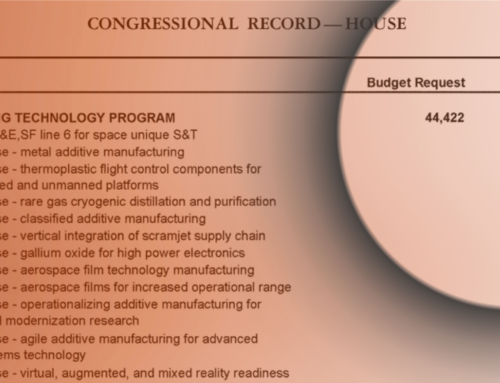Monday will mark the 50th anniversary of President Dwight D. Eisenhower’s unfortunately prescient and unheeded warning to the American public.
“We must guard against the acquisition of unwarranted influence, whether sought or unsought, by the military-industrial complex,” he cautioned. “The potential for the disastrous rise of misplaced power exists and will persist.”
The speech and the warning it contained resonate deeply at this particular political moment. A new class of lawmakers has just taken the oath after promising voters to shrink the deficit – and government. Defense Secretary Robert Gates hitched his wagon to their rhetoric when he announced a series of Defense Department reforms and weapons cuts last Thursday, weeks in advance of the White House budget release.
But perhaps the more relevant event, if a more quiet one, was Friday’s sentencing by a U.S. district court judge of lobbyist Paul Magliochetti to 27 months in prison. Magliochetti is a former House defense appropriations subcommittee staffer who parlayed his experience into a full-time business buying and selling influence, particularly to the late House Defense Appropriations Chairman John Murtha (D-PA). Magliochetti pleaded guilty last year to funneling nearly $400,000 in illegal contributions to lawmakers in exchange for earmarks to his clients.
There’s a reason Magliochetti specialized in securing defense-related earmarks, and it’s not just because of his resume. The major earmarking scandals of the recent past, such as those involving former Congressman (now convict) Randy “Duke” Cunningham (R-CA), involved defense spending. Why? In the words of former Representative and defense appropriations committee member Charlie Wilson (paraphrasing the bank robber Willie Sutton), “that’s where the money is.” Our defense budget has ballooned to more than $700 billion, accounting for nearly 60 percent of discretionary spending. Even if you discount war funds, DOD’s “base budget” increased by more than 50 percent over the past decade alone.
Defense appropriators are not only responsible for adding small earmarks: They also have the power to add favored programs to the spending bill. Epic battles erupted in recent years when DOD declared it had plenty of F-22 and C-17 aircraft(lawmakers with production facilities in their districts disagreed) and a similar struggle continues today over the alternate engine for the Joint Strike Fighter.
The budget shifts announced by Gates last week have already rallied some lawmakers to the fight. House Armed Services Committee Chairman Buck McKeon (R-CA) blasted the effort as an attempt to “gut” defense despite the fact that Gates isn’t proposing to lower DOD’s budget topline, only to slow its explosive rate of growth.
There’s a legend that the first draft of Eisenhower’s speech actually referred to the “military-industrial-congressional complex,” but was changed at the request of lawmakers. True or not, no one can deny that Congress provides the crucial third leg that makes the complex an iron triangle. The defense industry exerts influence on the budget process in many important ways, for example by hiring generals to represent their interests at the Pentagon, but the buck stops – and starts – with lawmakers.
Taxpayers are watching how Congress handles their bucks much more closely as the enormous annual budget deficits keep racking up. In the movie Dr. Strangelove , filmed around the same time as Eisenhower’s speech, the Russian ambassador tells the American president that his country created a “doomsday device” to eliminate life on earth simply because Russia couldn’t keep up with the expense of the arms race. Our debt presents a similar kind of mechanism, forcing us to reset our thinking on spending and focus on priorities. Congress must rise to that challenge and realize its job is to eliminate unwarranted influence, not propagate it.
###
TCS WB Quote of the Week:
“Program officials did not properly manage the BAMS contract, worth $1.8 billion. As a result, the BAMS program is at risk for increased costs, schedule delays and not meeting the needs of the warfighter.”
– Defense Department Inspector General report which again criticized the Navy’s Broad Area Maritime Surveillance program which is developing a fleet of drones to watch over the seas. Politico














Get Social